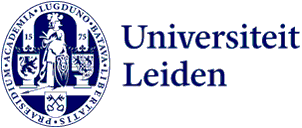Programme
When deciding what to study you undoubtedly read a lot of information about your study programme. Leiden University employs various systems to provide information about programmes and courses and to facilitate communication between lecturers and students.
The Prospectus contains information about all the courses within your study programme. Here you can find all you need to know about your programme. Via the online learning environment Brightspace you can communicate with your lecturers and submit assignments.
The master's programme in Classics and Ancient Civilizations: Egyptology is a one-year programme that covers most of the linguistic and cultural history of Pharaonic, Graeco-Roman and Coptic Egypt. All students visit excavations and research projects in Egypt and will learn about the department’s own field and research projects, including excavations at Saqqara and the Dakhla Oasis. The staff members co-operate with fellow researchers from universities and research institutes from various countries on project topics covering: Egyptian art history, Egyptian archaeology, Egyptian religion, Coptic Egypt, Social and economic history of Ancient Egypt. The wide-ranging research activities form an integral part of the educational programme.
Programme details
The master's programme comprises 60 EC, spread over two semesters. In the first semester, students take several courses up to a total of 30 EC and they start with the Classics and Ancient Civilizations MA-Seminar. All students follow a programme based on their individual background (depending on their skills and previous experience in Egyptology). Courses on offer are:
- Egyptian Temple Inscriptions of the Graeco-Roman Period (for those with a profound knowledge of Middle and Late Egyptian)
- Amarna Seminar
- Demotic Papyrology
or, for those without a firm background in Egyptology:
- Introduction to Middle Egyptian
- Selected Topics in Egyptian Archaeology.
Egyptology in the field (Cairo)
From January to March students take the course "Egyptology in the Field: Research and Facilties in Egypt", which is taught in Cairo. All students are, in principle, required to participate in the programme which is organised at the Netherlands-Flemish Institute in Cairo (Egypt) every year.
In the second semester students write their Master's thesis (15 EC), while taking the second part of the MA-Seminar and they take another 5 or 10 EC course, either a course in Papyrology (Demotic 2, Coptic or Greek), Seminar Mastabas/Old Kingdom elite tombs or Deir el-Medina Seminar.
Refer to the Prospectus for more information about the study programme.
Study Plan
At the start of their studies, students are required to hand in the form Study Plan MA Classics and Ancient Civilizations to the Co-ordinator of Studies in order to check if the study plan meets the requirements of the Master programme.
Should the study plan contain other courses than listed on the Prospectus, the Co-ordinator of Studies will send the form to the Board of Examiners for approval.
Guide to Academic Skills Classics and Ancient Civilizations
This guide aims to describe the academic skills that you need to master when following the (Res)MA programme in Classics and Ancient Civilizations. As an MA student, you will need to employ general academic skills: you should be able to conduct research and present the results of that research in papers and theses, or in oral presentations. And you should be able to engage in critical discussions of research with your peers and teachers. Accordingly, the general academic skills that you should master include research skills, writing skills, oral presentation skills, and cooperative skills. This guide provides an overview of these skills, and consists of practical information about relevant sources, reference works and tools, examples of grading forms and lists do’s and don’ts for oral and written presentations.
